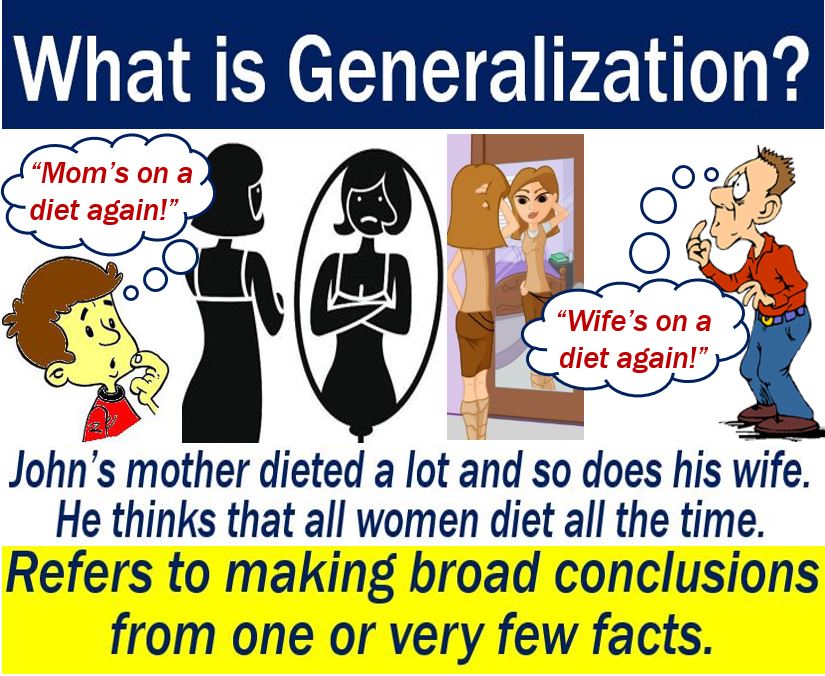What is generalization?
Generalization refers to making broad conclusions from a few facts or statistics. For example, let’s suppose a Londoner is rude to someone and they subsequently believe all Londoners are rude. That is a generalization.
From very limited data, I have inferred that it applies to all cases.
The verb is ‘to generalize.’
People who say that something is true all the time when it only is some of the time are generalizing. They are ‘victims’ of generalizations.
It is the process of identifying a part of the whole as the whole.The person may bring parts together as a group, even though there is no relationship between them.
Collins Dictionary has the following definition of the term:
“A generalization is a statement that seems to be true in most situations or for most people, but that may not be completely true in all cases.”

Generalization – inductive reasoning
Generalization is the result of an inductive thought process, i.e., part of inductive reasoning. Inductive reasoning contrasts with deductive reasoning.
With inductive reasoning, one or a few experiences come to represent a whole category or class of events.
With deductive reasoning, on the other hand, you begin with a general hypothesis or statement. Then you examine all the possibilities to reach a logical conclusion.
In other words, with deductive reasoning you use deduction to test theories and hypotheses.
Generalization is common
To a certain extent, we are all victims of generalizations. Sometimes, however, it is useful as a survival mechanism.
For example, when children put their hand in a fire, they feel a burning pain. Generalizing that all fires cause burning pain helps humans survive.
However, in personal dealings, generalizing often leads to prejudicial and discriminatory behavior.
What might happen if an ‘outsider’ comes into a village and attacks a villager? After the attack, some villagers may think that all outsiders are dangerous.
Therefore, there is a risk in future that some villagers will either shun or attack outsiders.
Racism, xenophobia, and fear of people of different religions are often the consequence of generalization.
Generalizations and politicians
Let’s suppose a conservative-leaning party, i.e., one that believes in the free market system, is in power. Then markets collapse, the country’s currency nosedives, and many people with mortgages lose their homes.
Some voters may generalize and conclude that free-market systems always lead to catastrophe. A free market economy is one where the buying and selling of goods and services are not under control of the state.
Left-leaning and right-leaning politicians exploit people’s generalizations. Especially if a problem helps them win elections.
Video – Stereotype vs. Generalization
Stereotypes and generalizations are not the same. In this Feel Like You Belong video, the speaker talks about the difference. He believes that generalizations are helpful, but stereotypes are hurtful.

